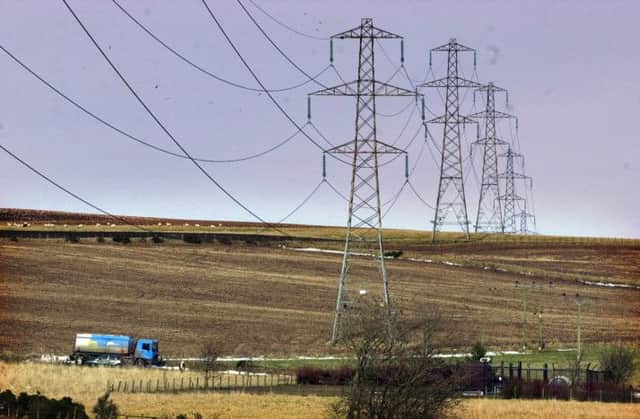SSE’s price pledge to weigh on retail arm


The news came as the Perth-based utility – which announced in March that it was freezing household energy prices until “at least” January 2016 – reported better-than-expected group earnings.
Adjusted pre-tax profits for the year to the end of March jumped 9.6 per cent to £1.55 billion, just ahead of the £1.52bn figure that analysts at Deutsche Bank had expected, on the back of higher bills introduced in November.
Advertisement
Hide AdAdvertisement
Hide AdHowever, energy supply operating profits at its retail arm slumped 32.2 per cent to £246.2 million, reflecting lower energy use by customers and increased gas costs. The group made its price promise a day before industry regulator Ofgem announced plans to refer the energy sector for a full-scale competition probe, and chief executive Alistair Phillips-Davies said the pledge had been “hugely popular”.
He added: “It remains the only such commitment available to customers and will mean we take a hit on retail profits over the next couple of years.”
SSE ended the financial year with 9.1 million customers across Britain and Ireland, down from almost 9.5 million a year earlier, but said the decline came before its price freeze took effect.
It added: “Energy supply profit margins are unlikely to recover to their 2013 level for at least another two years as costs rise but SSE’s prices do not.”
James Padmore, head of energy at comparison website comparethemarket.com, said: “The increased competition in the energy market, with smaller providers often offering lower prices, is attracting people away from the traditional suppliers. Ofgem’s attempts to speed up the switching process will be critical to enabling even greater competition and ultimately driving down energy prices.”
SSE said in March that it was seeking to trim £100m off its cost base within the next two years in a move that will lead to about 500 jobs losses and saw plans for a number of wind farms shelved for being “no longer financially viable”.
While the group insisted it would keep “strictly neutral” in the independence debate, it said a Yes vote in September’s referendum would pose “increased legislative and regulatory risk”.
Chairman Lord Smith said: “The issues facing the energy sector are very challenging. Nevertheless, customers, investors, regulators, politicians and SSE all want the same thing: an energy market that works for customers, and is trusted and seen to do so. We believe SSE is not part of the problem but part of the solution to meeting the energy needs of customers.”
Advertisement
Hide AdAdvertisement
Hide AdThe group’s board proposed a final dividend of 60.7p a share, up from 59p a year ago, lifting the total payout for the year by 3 per cent to 86.7p.
Graham Spooner, investment research analyst at The Share Centre, said: “We recommend SSE as a ‘hold’ for income investors. The group offers a prospective yield of 5.7 per cent and is aiming for dividend increases to be at least equivalent to inflation going forward.
“For investors looking for exposure to utilities, we prefer National Grid – a solid dividend payer, which is less affected by political pressures.”